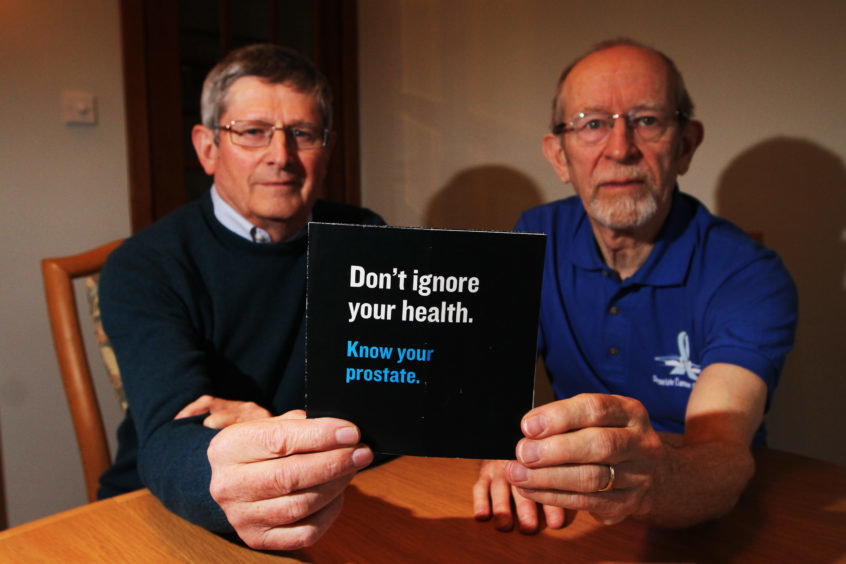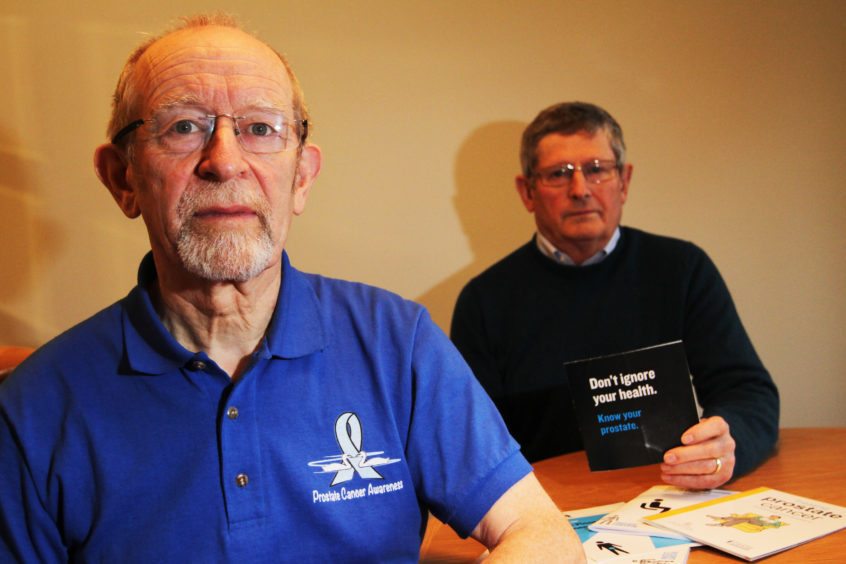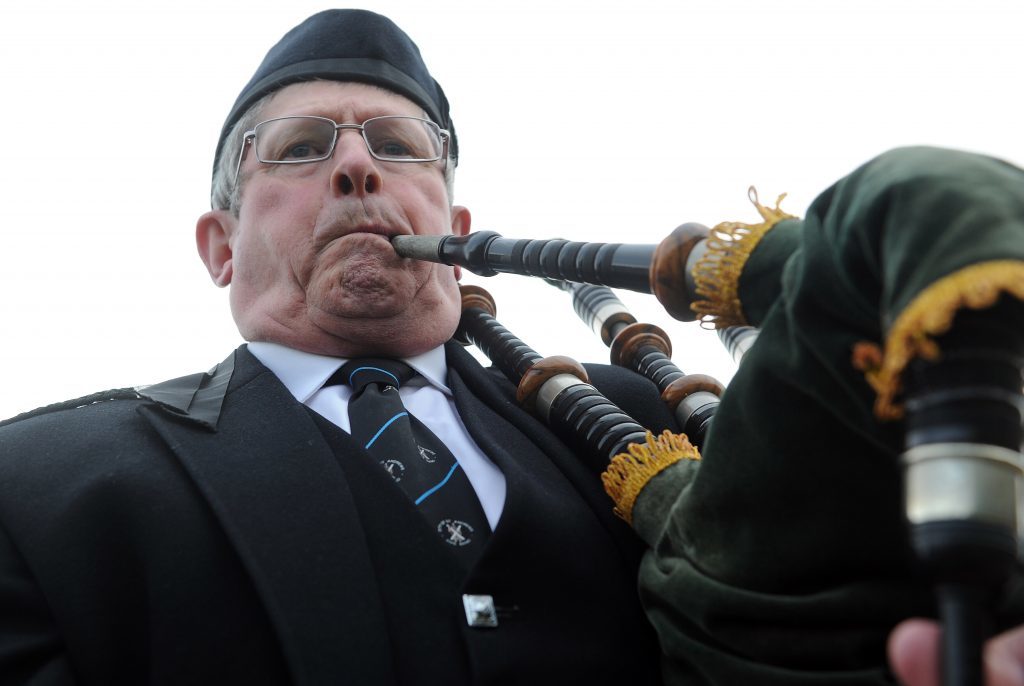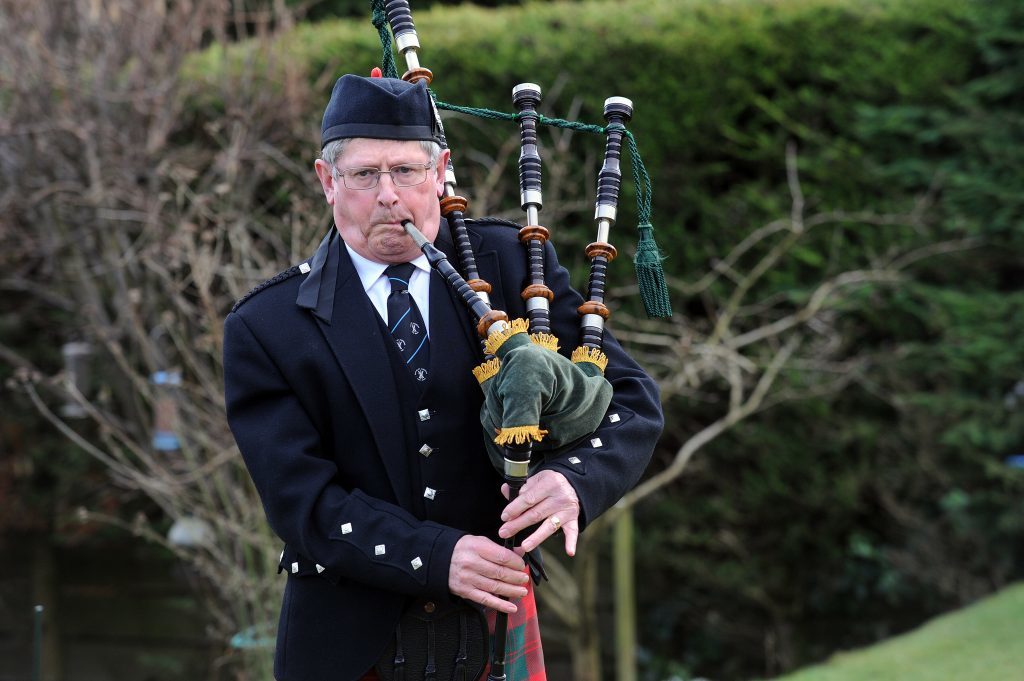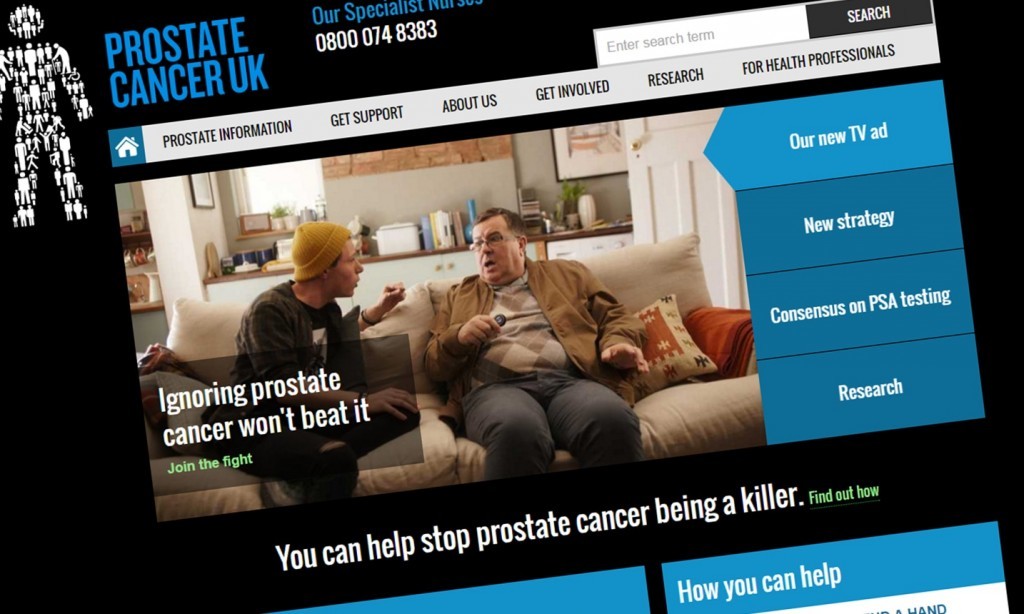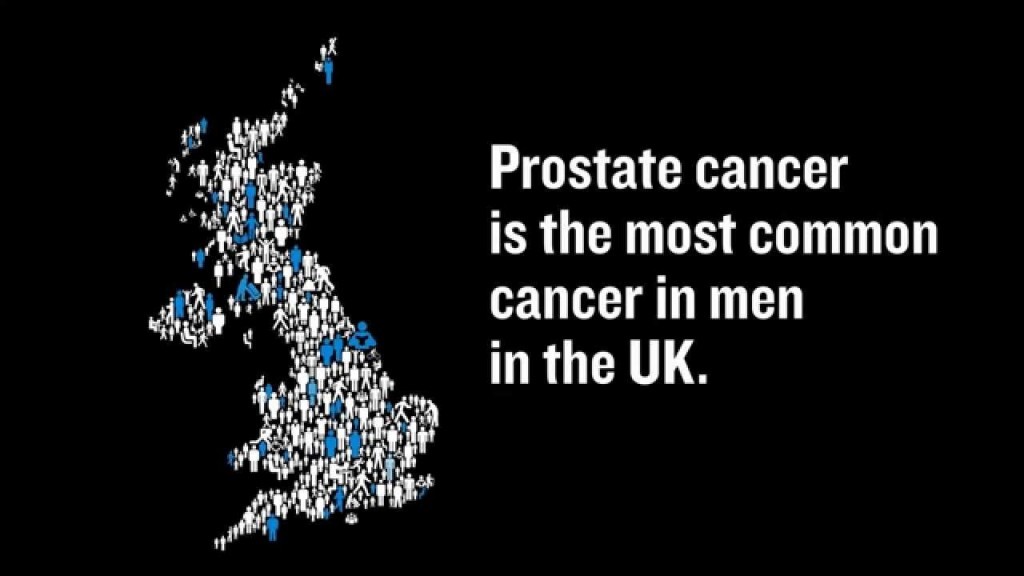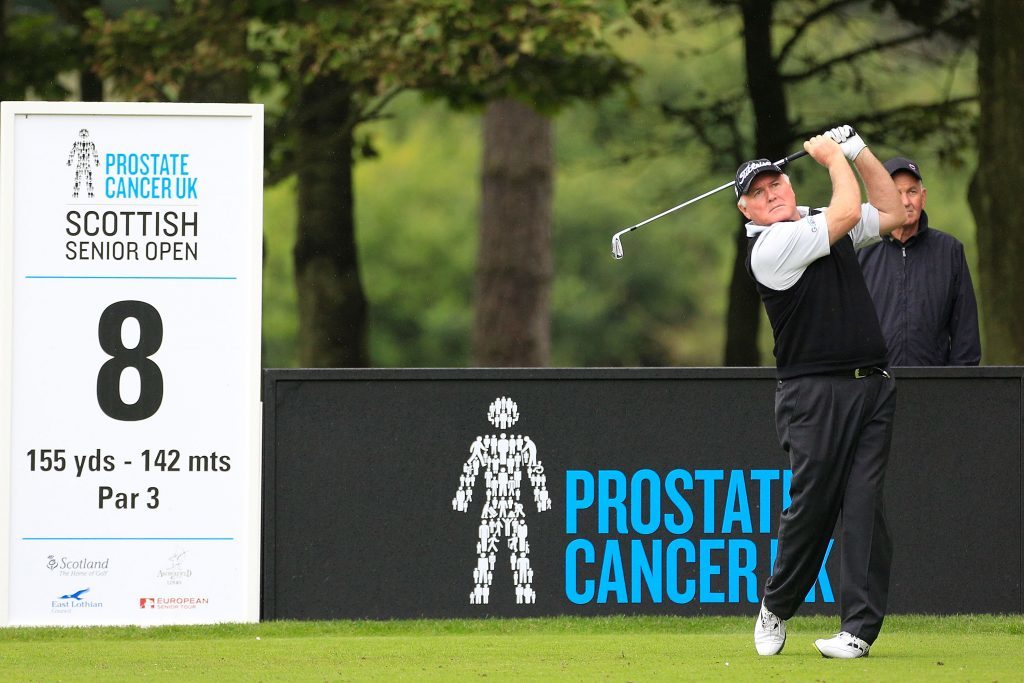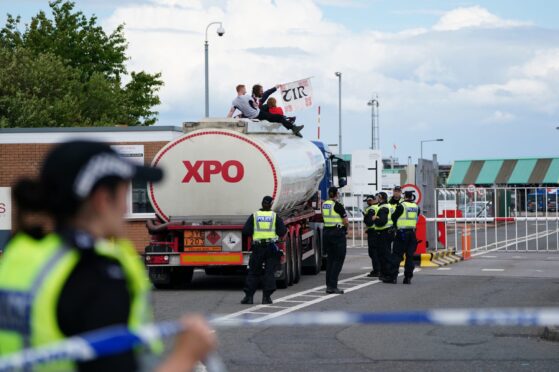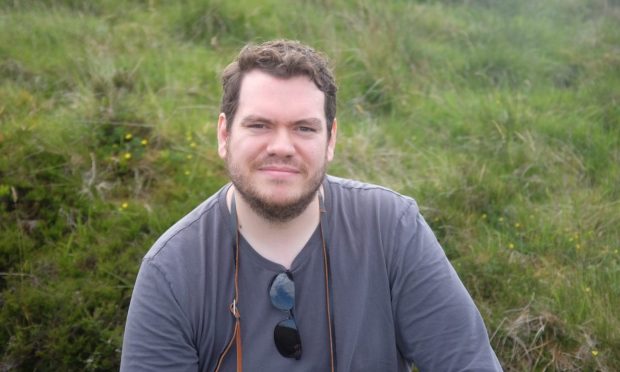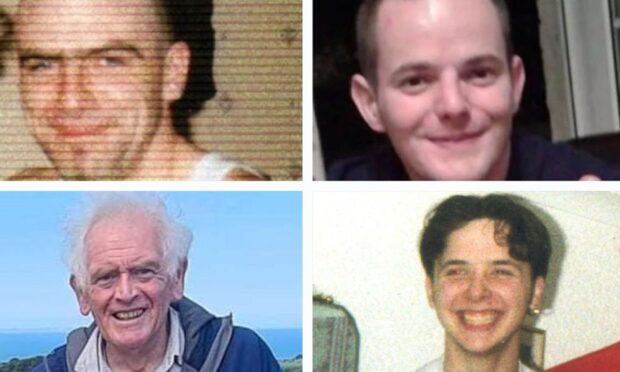As prostate cancer overtakes breast cancer to become the third biggest cancer killer in the UK for the first time, two Cupar men who survived tell Michael Alexander why they back routine checks for the over 50s and greater research into the disease.
Retired Cupar building surveyor Peter Manson has urged men to get tested for prostate cancer after revealing he has been successfully treated for the disease.
The 71-year-old grand-father-of-four, who is a keen curler, golfer and artist, decided to visit his GP in November 2016 after his brother-in-law was diagnosed with the same disease several years earlier.
Despite the fact he did not feel ill at the time, had no symptoms – and an earlier test just a few years earlier revealed all was fine – a test of his prostate-specific antigen levels (PSA) showed they were raised.
A subsequent biopsy revealed his cancer cells were “very aggressive” with the only good news being that they were all still contained within the prostate gland.
Given time, however, these cancer cells would spread outside if left unchecked.
Meetings followed with consultants to discuss his two options for treatment which were hormone injections for three months followed by radiotherapy or keyhole surgery to completely remove the prostate gland.
He discussed the pros and cons with his wife and brother-in-law and decided on the surgery which was carried out in June last year.
Knowing that the test and subsequent operation to have his prostate removed saved his life, he has now called on all men over the age of 50 to get tested.
“The knowledge that I had cancer had a surprisingly small effect on me at first,” said the elder of Cupar Old Parish Church, who is easing himself back into golf and curling.
“Now, I am very proactive regarding this cancer which has no real symptoms – problems with toilet visits during nights being about the only one and one which I didn’t experience!.
“I attended a funeral early last year of a friend – former Fife Council chief executive Douglas Sinclair -who unfortunately was not diagnosed with prostate cancer until it had spread and treatment was not possible.
“I have a “Prostate Awareness” polo shirt and wear the Prostate Cancer UK charity’s “man of men” lapel badge.
“I also carry small credit card sized leaflets from the charity which I hand out to any man I meet of 60 and over who does not know what PSA stand for! I have been very lucky!
“I am hugely in favour of more screening and for GPs to encourage all men over 50 to have regular PSA checks.”
Another Cupar man backing prostate cancer awareness is retired St Andrews and Cupar postmaster Douglas Provan.
The 69-year-old City of St Andrews and Cupar Pipe Band member, who recently retired as secretary of Cupar Community Council, and used to run with Dundee Hawkhill Harriers and Fife AC, first noticed potential symptoms around 10 years ago – but generally his diagnosis came as a “complete surprise”.
He said: “In my late 50s I noticed I was getting up once during the night to go to the toilet.
“I went to the doctor and he diagnosed an enlarged prostate but with no sign of cancer.
“He gave me a tablet to take once a day to control it.
“In my early 60s, just after I retired I went to the doctors for an ‘MOT’.
“A week after I got a letter asking me to see him. He told me I had a raised PSA. I then had an appointment with a consultant at Ninewells Hospital and had a biopsy carried out.
“This confirmed early stage cancer. My symptoms had not changed so it came as a complete surprise.
“In July 2012 I had an operation in Ninewells to remove the prostate.
“Afterwards I had a PSA check every six months.
“It was clear until 2014 when the PSA rose due to a residual part of the prostate which was not removed because it would have meant more radical surgery.
“I then had one month of radiotherapy at Ninewells. I now have gone back to the six months check and so far it is clear.”
Douglas was due another blood PSA test on Monday and was keeping his fingers crossed that this would again be clear.
He added: “Because I was checked early and they caught it early my cancer was not aggressive.
“My only feeling when I was told I had cancer was I had to ‘man up’ and handle it.
“So far we have breast cancer and bowl cancer screening both of which have proved valuable and cost effective.
“More screening in whatever form is very necessary for prostate cancer.
“I have spoken to many friends about my experience and because of this several men have been checked and one that I know of who didn’t have any symptoms found he had prostate cancer.”
According to Prostate Cancer UK, prostate cancer has become the third most common cause of cancer death in the UK, overtaking breast cancer, despite improvements in survival rates for both.
The charity said the number of men dying from prostate cancer every year has overtaken the number of women dying from breast cancer for the first time with 11,819 men now dying from prostate cancer in the UK every year compared with 11,442 women who die from breast cancer.
An ageing population means more men are developing and dying from the disease.
However, although deaths from prostate cancer have been rising over the past decade, the mortality rate or the proportion of men dying from the disease has fallen by 6% between 2010 and 2015.
For breast cancer the mortality rate has come down by 10%, meaning deaths in women are declining more quickly.
Prostate Cancer UK says increased funding could benefit prostate cancer.
Angela Culhane, chief executive of the charity Prostate Cancer UK, said the disease currently received half the funding and half the research that is devoted to breast cancer.
She said developing better diagnostic tests that could be used as part of a nationwide screening programme would be a priority.
At present, there is no single, reliable test for prostate cancer – the PSA test, biopsies and physical examinations are all used.
There can be few symptoms of prostate cancer in the early stages, and because of its location most symptoms are linked to urination: needing to urinate more often, especially at night; needing to run to the toilet; difficulty in starting to urinate; weak urine flow or taking a long time while urinating and feeling your bladder has not emptied fully
Men with male relatives who have had prostate cancer, black men and men over 50 are at higher risk of getting the disease.
The top cancer killer in the UK is lung cancer followed by bowel cancer.
Michael Chapman, director of information and involvement at Cancer Research UK, said: “The number of men getting and dying from prostate cancer is increasing mostly because of population growth and because we are living longer.
“We’re dedicated to improving diagnosis and treatments for all cancers which is why we’re investing in research to help develop more treatments.”
